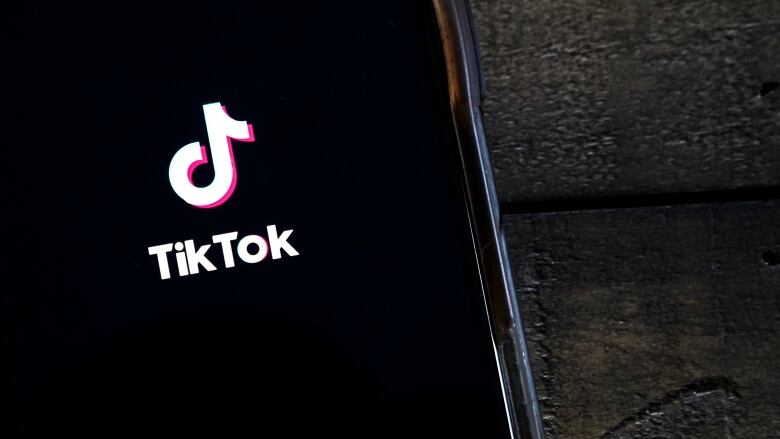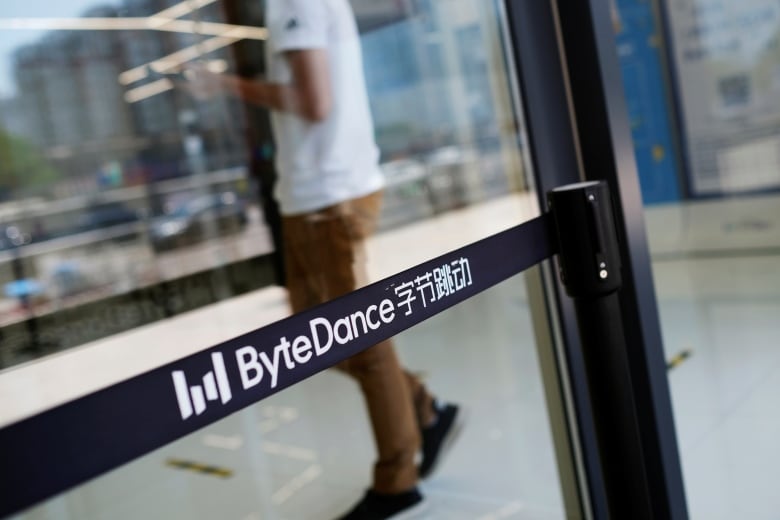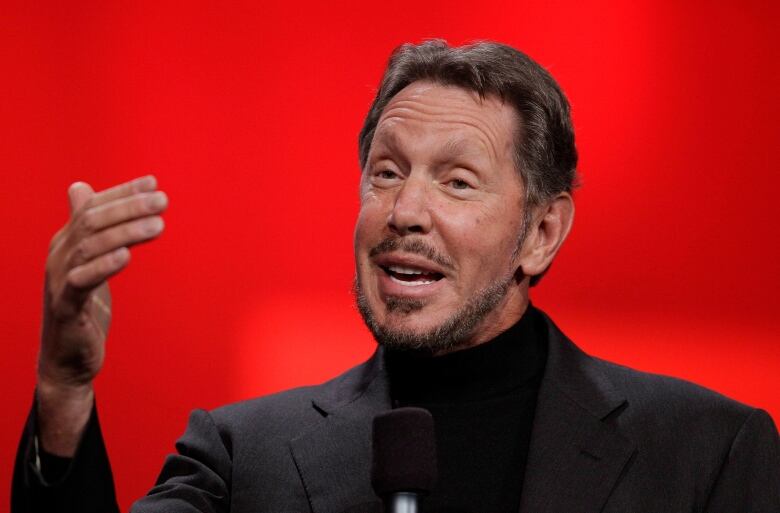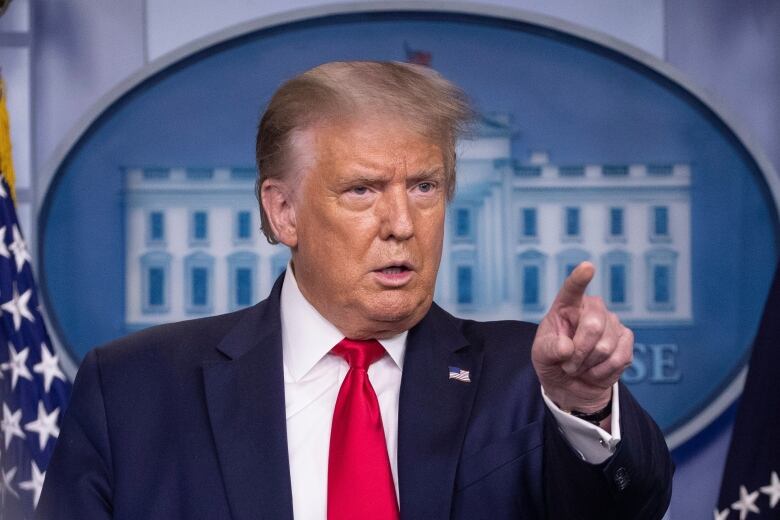Why TikTok is at a crossroad and where it could go
Video-sharing app faces Trump-imposed Sept. 20 deadline; could form new U.S.-based company to avoid ban

TikTok users might not notice any change, but a shakeup is in the works for the company behind the wildly popular video sharing app.
Caught in a political tug-of-war between Washington and Beijing, the platform is facing a Sept. 20 deadline imposed by U.S. President Donald Trump to cut ties with China, where its current owners are based.
The Chinese firm, ByteDanceLtd., struck a deal this week with Silicon Valley-based Oracle Corp. in an effort to save TikTok from a potential ban in the United States.
Let's examine what's at stake.
Why did TikTok have to find a suitor in the first place?
Amid a trade war with Beijing, the Trump administration cited national security concerns when the U.S. president issued an executive order in August to ban Americans from doing business with ByteDance.
The White House effectively gave the company until Sept. 20 to find a U.S.-based owner,or else the appand its endless stream of lip-sync, dance and comedy clips faced an uncertain future in the country.
Analysts have long wondered whether the Chinese government secretly compels tech firms in the country to give Beijing the personal data of foreign users. TikTok's owners have maintained U.S. user data is stored in the U.S., with a backup saved in Singaporeand that it's not subject to Chinese oversight.
The U.S. administration doesn't buy it, claiming TikTok potentially allows China "to track the locations of federal employees and contractors, build dossiers of personal information for blackmail and conduct corporate espionage."
In support of theexecutive order, the White House also pointed to claims that TikTok censors content deemed politically sensitive by the Chinese Communist Party (CCP). The U.S. administration said the platform could be used for disinformation campaigns on topics such asCOVID-19 caused by the coronavirus, which first emerged in China.

What deal is on the table?
Tech giant Microsoft Corp. was first considered the front-runner to purchase TikTok'sU.S.operations, but the deal fell through. Walmart was reported to have expressed interest, too.
Instead, Oracle, a firm best known for cloud computing services, surprised many observers when it emerged as the successful bidder.
Political watchers couldn't help but point to the firm's ties to Trump. Founder Larry Ellison organized a fundraiser for Trump's re-election campaign earlier this year, and OracleCEOSafra Catzeven served on Trump'spresidential transition team.
Oracle has only confirmed it has offered to act as a "trusted technology provider" for TikTok in the U.S., stopping short of buying ByteDance'sU.S.arm outright.

Oracle has not publicly released other information about its proposal, but the Financial Times on Tuesday cited sources suggesting the firm could obtain a minority stake in a new,separate U.S-based company created to manage TikTok's worldwide operations. ByteDance would still retain most shares in the new entity.
This plan appears to correspond with the proposal received and briefly outlinedMonday by U.S. Treasury Secretary Steve Mnuchinon CNBC"to create TikTok Global as a U.S.-headquartered company with 20,000 new jobs."
For the Chinese market, ByteDance already operates Douyin, a platform similar to TikTok but run separately.
A TikTok spokesperson emailed a statement, saying only the proposal "would enable us to continue supporting our community of 100 million people in the U.S. who love TikTok for connection and entertainment, as well as the hundreds of thousands of small business owners and creators who rely upon TikTok to grow their livelihoods and build meaningful careers."
The deal with Oracle, which has been submitted for approval by the U.S. Treasury Department, could strike a balance between Trump's demands and those of Beijing.
The Chinese government recently announced restrictions on the export of artificial intelligence technology. The move seemed designed to head off any sale of TikTok's signature algorithms the code that tailors video suggestions and keeps users hooked.
Daniel Sinclair, a New York-based independent social media researcher, said too few details are known to predict whether the transaction would satisfy the White House's expectations.
He said the few apparent details that have been reported suggest the deal does not meet the demands set out in the August executive order.But the administration's intent may have shifted, Sinclair said, to "saving face, closing any dealand creating a somewhat technologically sound soft landing to a Trump donor,"referring to Oracle's Ellison.
Why does it matter?
TikTok isn't the only popularChinese-owned technology used in North America, and questions about CCP control persist. A Trump administration decision to accept partial Chinese ownership for TikTok could set a precedent for other apps.
"Of all the Chinese apps to be worried about, TikTok is not even in my Top 10," Alex Stamos, a former chief security officer at Facebook and Yahoorecently said in a BBC interview.
"I find TikTok to be a little bit of just a symbol here, standing in for the entire Chinese industry," said Stamos, who now serves as director of the Stanford Internet Observatory research centre at Stanford Universityin California.
In particular, the decision could have an impact for messaging and payment softwareWeChat, which is hugely popular among the Chinese diaspora. It has an estimated 1.2 billion users worldwide.
WeChat, owned by Shenzhen-based TencentHoldings, is a persistent source of concern over Chinese surveillance and censorship. Earlier this year, the University of Toronto's Citizen Lab found WeChat users in Canada are likely unwittingly assisting the censorship of users inside China.
A deal to secure TikTok's future may also signal a further deepening of the divide between the internet available in Chinabehind the country's "Great Firewall" of control and that in the rest of the world.
With any hardened stance from the U.S. toward Chinese ownership, "the likelihood that Chinese companies will venture overseas shrinks," Sinclair said.

What does this mean for Canadian TikTok users?
A previous proposal for TikTok would have seen Microsoft administer user data from not just the U.S. but also Canada, Australia and New Zealand. Neither ByteDance nor Oracle has confirmed where personal information from users outside the U.S. and China will be stored under their new deal.
Philip Mai, co-director of the Social Media Lab at Toronto's Ryerson University, said there's no risk Canadian users will lose access to TikTok even if Trump follows through with his threat to ban the app in his country.
Although TikTok is believed to store Canadian data in the U.S., Mai said firms usually have their data backed up on multiple servers in various jurisdictions in the event of unforeseen circumstances.
"If an order to shut down does happen, their engineers will simply redirect the traffic for Canadian users to one of these mirror sites," Mai said. "Users might notice some temporary delays or slow down in service, but there will not likely be a complete blackout of services."
A TikTok representative did not directly respond to a request for comment about what the deal could mean for Canadian users and their data.












_(720p).jpg)


 OFFICIAL HD MUSIC VIDEO.jpg)
.jpg)



























































































